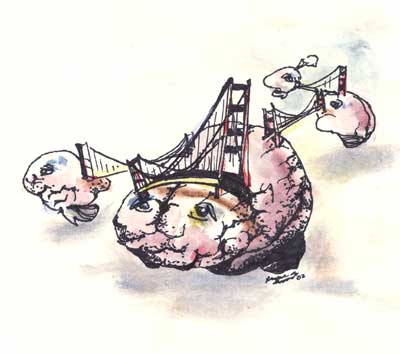Serendip is an independent site partnering with faculty at multiple colleges and universities around the world. Happy exploring!
emergence

From evolving systems to world literature and back again?
The Facebook group "Rethinking World Literature" hosts a series of interdisciplinary discussions around the topic of what constitutes "world literature." The Evolving Systems project on Serendip hosts a series of interdisciplinary discussions exploring the common usefulness in a wide array of contexts, academic and otherwise, of emergent and evolving systems ideas. The conversation documented below is archived from a discussion on the Rethinking World Literature Facebook site and will be added to as that discussion continues.

Evolving humanity: towards a "third way"
Rationality and social wisdom/cohesion clearly play important roles in inquiry, in education, and in human affairs generally. But there are problems with relying on either alone, and with the two in combination as well.



